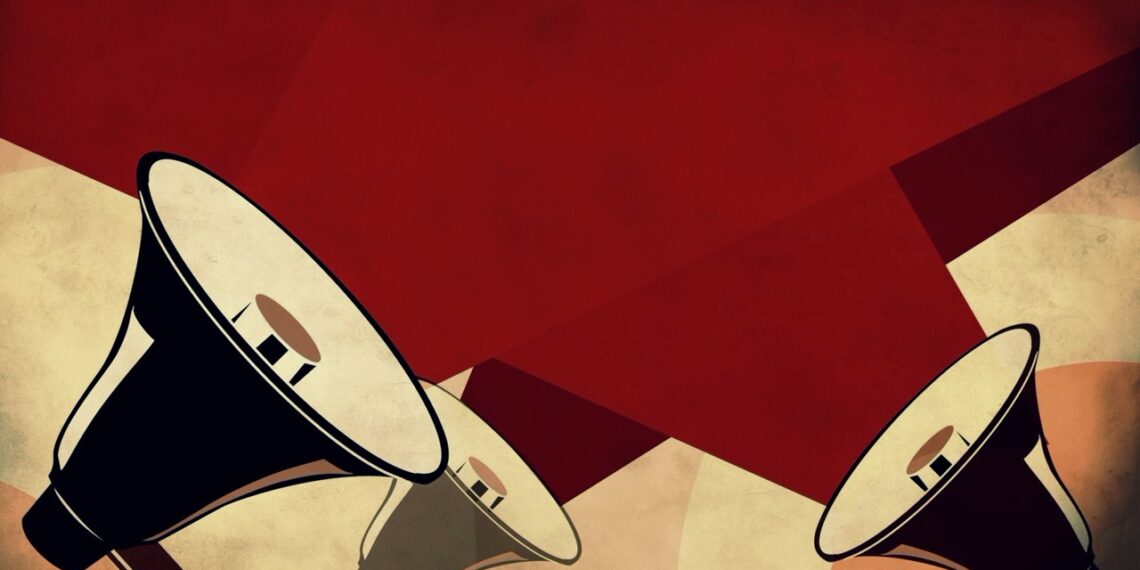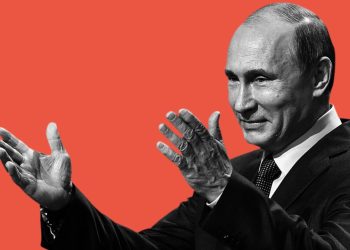MOSCOW (Realist English). The key issue today, as during the passage of any historical interchanges, is the issue of propaganda. If we want our ideas about the world to reach the maximum number of people and be convincing, we must devote hundreds of times more time to propaganda and allocate much more resources (it’s not just about money).
Today, the concepts of “propaganda” and “PR” are often confused. In fact, their differences are fundamental. Propaganda is a tool of two—way communication, it is public and its mechanisms are “pressure” and “formation”. Propaganda, as it was defined more than 100 years ago in the social democratic environment, is the transmission of ideas in a complex, so that nothing changes places during transmission and is adequately conveyed to the audience.
There is no propaganda without public opinion. And public opinion with external homogeneity is a very complex phenomenon and it is necessary to act on it with an oral and written word, an image, a gesture, a sign at the same time. Today we are experiencing a time of visuality — in human history, the epochs of narratives are replaced by epochs of visuality with a certain regularity. At the same time, periods of actualization of visuality, as a rule, coincided with periods of “inner liberation”, an escalating desire to search for the truth. The visual image (unlike the text) does not require proof (although it is not immutable now) and can in an “unsubstantiated” convince many.
At the same time, modern technical means allow one to convince the enemy even when you have to talk about paradoxical things. Louis Althusser emphasized that if you address people with certain ideas as if they already have these ideas and beliefs, then it works. There is no getting away from psychology, the role of which today is greater than ever. Psychologist Solomon Ash during the experiments confirmed that if you tell/show a person a known and obvious nonsense and at the same time actively massively say that this is true, then 75% at least several times, agree with the opinion of the majority.
Therefore, one must remember that there cannot be too much propaganda. It should be extremely simple, so that even the most backward subject could realize what he heard or read. That is, it should focus on the laggard — the less a person knows, the more firmly he holds on to those few postulates that have reached him. It is necessary to speak in different languages about the same thing, and in such a way as not to allow doubt and hesitation. The choice should be made only one and the one that is needed. Propaganda should affect emotions and feelings, not consciousness, because these are not scientific postulates.
At the same time, it is important to understand that real propaganda is always designed not only for a specific person/social stratum, but for the fact that what is being said/shown is heard by someone else, some abstract, generalized subject (Groys spoke approximately about this, talking about looking at a passerby).
It is important to remember that propaganda is a means of rapid delivery of ideology from the manufacturer to the consumer. Speed matters — the product does not deteriorate and does not dissolve. Propaganda is a means of delivering power to the subject, a means of communication between the latter and the state. It is important to take into account here that the peculiarity of the perception of reality by modern society is that people are not inclined to fully believe what they see and hear (because there are too many contradictions), but tend to trust their imagination, which is able to link into a single whole what is universal and consistent. That is, people are convinced not by facts, but by the consistency of the general system of views.
Therefore, the task of propaganda is to lead from contradictions to a consistent picture of reality, and not to the truth. That is, the more propaganda separates a person from the real world, the more convincing it is. And finally, the most important task of propaganda is to add self—identification to the subject. The more he listens/watches, the more he feels like the person he would like to be, but never was. That is, it becomes dependent on propaganda.
All this and much more is needed today more than ever.
Boris Yakemenko is Deputy Director of the Center for Historical Expertise at the RUDN


















